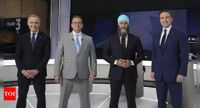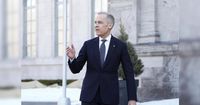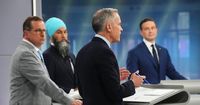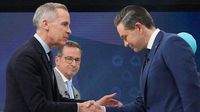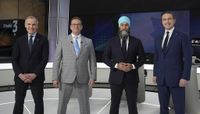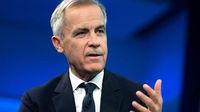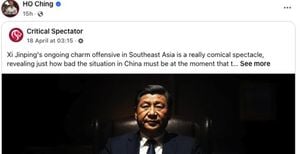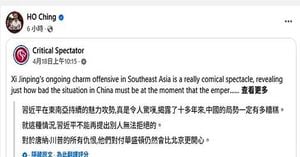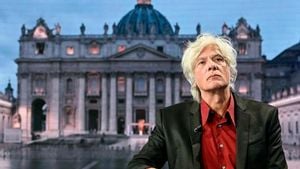In a heated French-language leaders’ debate on April 16, 2025, Prime Minister Mark Carney positioned the upcoming Canadian election as a crucial decision on who can best confront U.S. President Donald Trump. Carney, who recently succeeded Justin Trudeau, emphasized that the central question is not merely about domestic policies but about leadership in the face of Trump’s aggressive tactics, including trade wars and threats to make Canada the 51st state.
Carney's Conservative rival, Pierre Poilievre, countered that Carney represents continuity rather than change after a decade of Liberal leadership. "Mr. Poilievre is not Justin Trudeau. I’m not Justin Trudeau either. In this election, the question is who is going to face Mr. Trump," Carney stated, attempting to shift the focus from Trudeau's legacy to the external challenges posed by Trump.
The debate highlighted the growing surge in Canadian nationalism, a sentiment fueled by Trump’s rhetoric, which has significantly boosted the Liberal Party's standing in recent polls. With the election scheduled for April 28, 2025, Carney's leadership is increasingly seen as pivotal in navigating the complex U.S.-Canada relationship.
During the debate, Poilievre urged Canadians not to grant the Liberals a fourth consecutive term, arguing that the party has overstayed its welcome. He aimed to frame the election as a referendum on Trudeau, whose popularity has waned amid rising inflation, soaring housing costs, and increased immigration. However, following the unexpected resignation of Trudeau and Carney's ascension, the dynamics of the race have shifted.
Polls indicate a dramatic change in public sentiment. A Nanos poll from mid-January showed the Conservatives leading by a staggering 47% to 20%. However, a more recent poll released on April 16 revealed the Liberals now leading by 8 percentage points, marking a remarkable turnaround. The poll’s margin of error was 2.7 points, suggesting a significant shift in voter attitudes.
Bloc Québécois leader Yves-François Blanchet echoed Poilievre’s sentiments, asserting that Carney’s rise does not signify genuine change, stating that the Liberals remain the same party with the same ministers and policies. He criticized Carney for failing to demonstrate a distinct departure from Trudeau’s administration.
The debate, strategically held in Montreal, Canada’s second-largest city, was moved up by two hours to avoid a conflict with a Montreal Canadiens hockey game, underscoring the cultural significance of sports in Canadian politics. The NHL team’s playoff aspirations are a reminder of how deeply intertwined national identity and political engagement can be.
Following the debate, Carney reiterated his focus on economic growth, stating, "One of the differences, there are many, but one of the differences between the two of us is that I put much more emphasis on the economy, on growing the economy." This emphasis on the economy is particularly relevant given the current inflationary pressures and housing affordability crisis affecting many Canadians.
As the election approaches, the upcoming English-language debate scheduled for April 17, 2025, will provide another opportunity for both Carney and Poilievre to sharpen their contrasting messages. Carney aims to solidify his position as the leader best equipped to handle the complexities of international relations, particularly with the U.S., while Poilievre seeks to redirect the conversation back to domestic issues that have fueled his earlier rise in the polls.
The stakes are high as Canadians prepare to cast their votes in what is shaping up to be one of the most consequential elections in recent memory. With questions of national identity and economic stability at the forefront, the election represents not just a choice of leadership but a referendum on Canada’s future in a rapidly changing global landscape.
As the political landscape continues to evolve, both parties will need to navigate voter concerns and aspirations carefully. The question remains: who will Canadians trust to lead them through the challenges posed by a resurgent nationalism and the unpredictable nature of U.S. politics?
